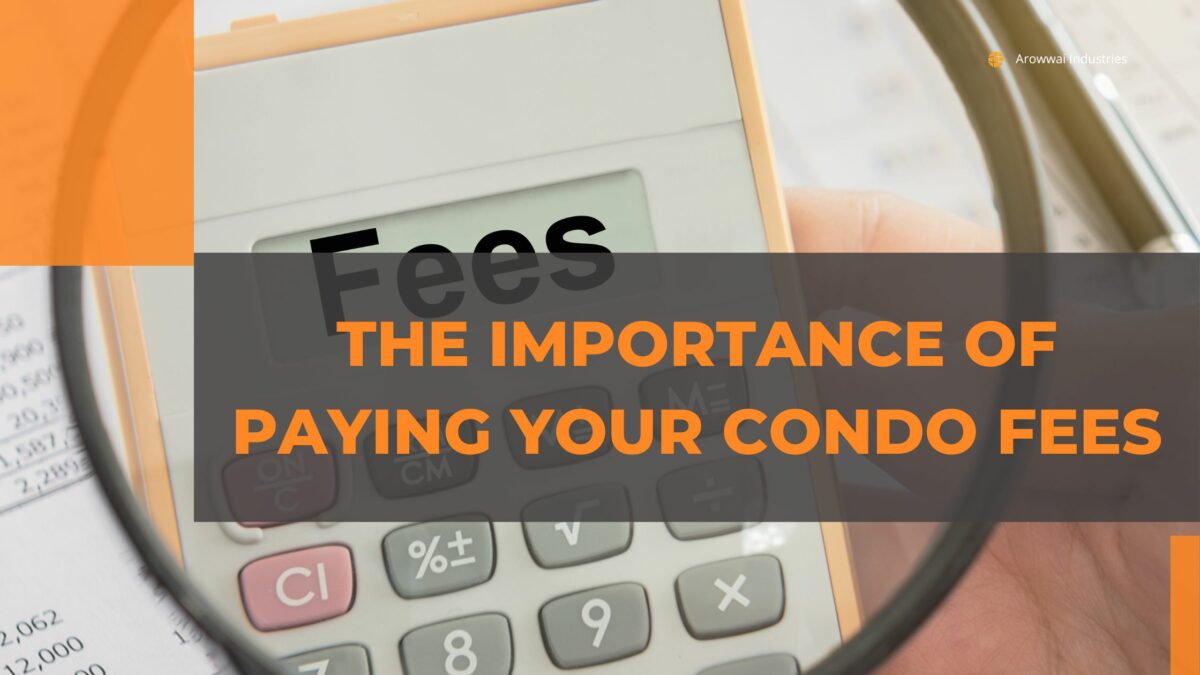The Importance of Paying Your Condo Fees
There’s a lot to love about condo living – but one thing that even we’ll admit is a bit of a drag is the fees that come along with it. So the whole thing would be better if you could enjoy all the benefits of living in a condo without worrying about those pesky monthly payments, right?
That got us thinking: Can a condo owner reap all the benefits of living without making those obnoxious monthly payments?
The answer is, unsurprisingly, no. So no, you can’t just not pay your condo fees!
In fact, there’s a whole system in place to ensure that those fees (that benefit the entire condo community, mind you) are paid regularly. We’re joined today by Fabrice Vermeer – Catalyst’s own Accounting Manager and condo fee aficionado – to walk us through how it all works.
We’ll Tell You That for Free: Five Facts on Unpaid Condo Fees
1. Condo Fees: They’re a Good Thing!
Before digging into what happens when you don’t pay your condo fees, it seems wise to first take a moment to cover precisely why it’s worth coughing up that monthly contribution in the first place!
The word we just used – “contribution” – that’s key to the whole thing. We recently shared a blog detailing exactly where all those condo fees go monthly. So take a moment and check it out to understand just how important those condo fees are.
Remember that you’re part of a larger community when you live in a condo. As such, it requires everyone to pitch in to ensure the building and living experience continues to be one that people can be proud of – and can count on to keep them safe, warm, and sheltered.
Those fees make that happen: they keep the furnace running, the roof in good repair; the sidewalks shovelled and ice-free when the weather gets nasty. That monthly money matters, which is why unpaid fees can deal such a severe blow to condo communities – and why they’re taken so seriously.
2. What Happens When Fee Payments Are Missed? It Starts with a Letter
Now that we’ve sorted out what those condo fees are for (and why they’re so important!), let’s chat about what happens when those fees are missed.
Here at Catalyst, things start with a friendly letter.
“Starting at 30 days overdue, you get the first email from us,” Vermeer began breaking the process down for us. “This is just a notice reminding the condo owner that they owe monies.”
So, condo owners have a whole month to make good on their payments before they hear anything from Catalyst. If that doesn’t do the trick, things escalate from there.
3. More Mail than Harry Potter
What happens after that first email goes through? Well, more of the same at first. A lot more.
“After that first email goes through,” Vermeer continued, “we’ll send a follow-up note every seven days afterward.”
The notices don’t stop at just emails, though. Catalyst goes much further than that to safeguard your condo community’s finances. “At 60 days overdue, that’s when you’d get your first phone call,” Vermeer detailed. “Then, at 90 days overdue, we issue a demand letter. There’s nothing legal about it – it’s just us saying, ‘Hey, before we take legal action, this is just another reminder.’ By this point, the owner has received eight emails and a phone call telling them they owe that money. From there, we issue one more phone call at 100 days overdue, after which things get slightly more serious.”
4. Leaning on Liens
Did all those letters and phone calls not do the trick to coax out those overdue condo fees? That’s when Catalyst starts to bring out the big guns.
“At 120 days overdue, we start issuing caveats,” Vermeer told us. “This acts like a lien on the land title so that if the owner tries to sell the unit or anything happens, we – and by extension, the larger condo community – are the first on the title to get paid out.”
Venturing into the territory of liens and caveats isn’t particularly fun for anyone, but as an advocate for your condo community, Catalyst is prepared to do so.
5. The Last Stop for Overdue Fees
Typically, if the letters and phone calls don’t get an owner to make good on their fees, those caveats will – but if even that escalation doesn’t do the job, condo communities have one more option to recover that missing money.
“If nothing else works and the monies owed continue to be outstanding, we can sometimes find ourselves in the unfortunate position of needing to manage a foreclosure on the unit,” Vermeer concluded. “This is a process typically initiated by the condo board itself – and they do so with good reason.
“If an owner owes upwards of $20k,” Vermeer explained, “that outstanding debt starts to affect the whole building. Suddenly, the condo corporation (especially in smaller condo communities) will start running out of money to fund ongoing projects. They won’t be able to pay for repairs. If something like a flood happens, they’ll need to issue a special assessment to cover the costs – costs that the condo corporation normally could have handled otherwise. Of course, nobody wants to foreclose a unit – but sometimes, that’s the only option available to keep the rest of the community afloat.”
It’s not always a pretty job, but somebody has to keep your condo community’s interests at heart. That’s where a stand-up board supported by a crack condo management company can help keep your investment safe.
Thanks once again for taking the time to share your knowledge on all things condo-related, Fabrice! Looking for a condo management company to have your back when the going gets tough? Get in touch with us at Catalyst Condo Management today.

